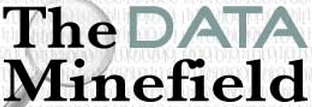We are pleased to present The Data Minefield, a project that encompasses original research on the U.S. government’s use of data mining tools for national and homeland security, as well as similar uses around the world.
Heading the project was our Carnegie Fellow, Paul Rosenzweig, former first Deputy Assistant Secretary for Policy at the Department of Homeland Security. He is the coauthor (with James Jay Carafano) of Winning the Long War: Lessons from the Cold War for Defeating Terrorism and Preserving Freedom (Heritage Books) and the author of the forthcoming book Cyberwarfare: How Conflicts in Cyberspace are Challenging America and Changing the World (Praeger).
Increasingly, in a networked world, technological changes have made it easy to collect vast storehouses of personally identifiable information. The processing power of computers has increased exponentially, while the costs of storing data have followed an inverse exponential curve. More and more powerful computer algorithms are being set loose to analyze larger and larger sets of personal data. This is the phenomenon sometimes known as “data mining” or “link analysis” and it is the subject of this project.
As the available treasure trove of personal data has grown, so have governmental and commercial efforts to use this personal data. Commercial enterprises target ads and solicit new customers. Governments use the data to identify and target previously unknown terrorism suspects — to find so-called “clean skins.” This capability for enhanced data analysis has already proven reasonably effective. The prospect ahead is only for more, larger data mining programs, not fewer.
Yet this analytical capacity also comes at a price – the peril of creating an ineradicable trove of information about innocent individuals. That peril is one common to all human endeavor – a tool that can be used for good can also be misused. In the government sphere one imagines data mining to identify political opponents, for example, and in private sector we fear targeted spam.
The Data Minefield project presents original research on the U.S. government’s use of data mining and link analysis tools for national and homeland security. In the research presented, reporters will find useful layman’s explanations of the technology; a guide to experts in the field and government reports; an explanation of how one might cover the topic; and more.
The fundamental premise of the project is simple: Increasing computing and storage capacity is allowing the discovery of knowledge previously unknown. In doing so the technological change is challenging our settled conceptions of privacy and civil liberties. At the intersection of technology and privacy lies a lot of good reporting opportunities.






